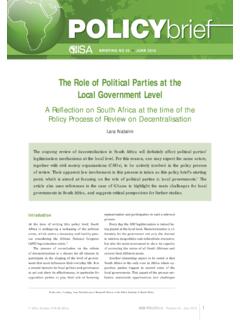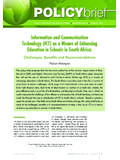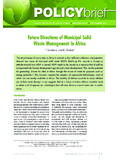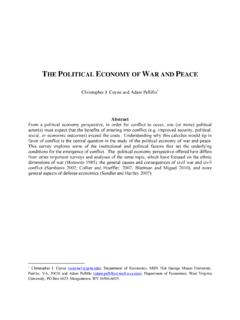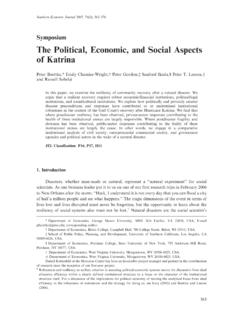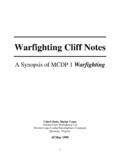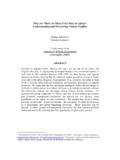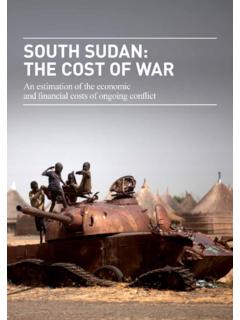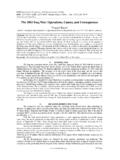Transcription of The Political, Economic and Social Dynamics of …
1 1 Africa Institute of South Africa AISA POLICY brief Number 39 February 2011 BRIEFING NR 2 APRIL 2008 GBRIEFING NO 39 FEBRUARY 2011 The political , Economic and Social Dynamics of Nigeria:A Synopsis Aregbeshola R. AdewaleThe political economy of a country is pivotal to its Economic Dynamics as well as its Social system. While politics and the process of politicking do not necessarily give rise to the Social structure of a people, the institutional framework, process and outcome of this exercise do infl u-ence the course and outcome of achievable socio- Economic status of the nation and its peo-ple.
2 Inasmuch as the primary expectation of electorates is to reap the benefi ts of democracy through their improved standard of living and sustainable socio- Economic prosperity, failure to deliver on these measurable indicators are bound to be unsettling. Although these obligations are always seen as the benchmark for every political leadership (including in Nigeria), the practical reality of events has been one-dimensional. As the second-largest economy and the most populous country on the African continent, the prospect of Economic advancement and Social prosperity are largely evident and supported by the regulatory environment.
3 However, the prospect of their realisation in a country that was beleaguered by a chequered history of political imbalance, including a thirty-month civil war, thirty years of military rule, and highly diverse and polarised ethnic and religious groupings that are perennially at friction with one another, appears to be Information and Introduction Nigeria lies between latitude 40 and 140 north of the equator and longitudes 30 and 140 east of the Greenwich Meridian. The coun-try lies entirely within the tropical zone. It oc-cupies about 923 773 km2 (about 3% of Africa s landscape).
4 According to the 2006 census, Nigeria s population was 140 million in March Aregbeshola R. Adewale is a lecturer in the Department of Business Management (International Business) at the University of South Africa. 2 AISA POLICY brief Number 39 February 2011 Africa Institute of South Africaof that year, of which more than 50% live in the urban areas (NBS, 2010). According to the same source, the country s population consists of seventy-two million males and sixty-eight million females, thereby making it the most populous country in Africa (about 14% of the total African population).
5 However, the exact size of the population and its growth rate have long been a contentious issue because of their implications for ethnic balance, electoral com-petition and the allo cation of federal revenue. Although the 2006 census indicated an an-nual population growth of , most independ-ent assessments toned down the growth rate. The United Nations Population Fund (UNPF, 2009) expects Nigeria s population growth to fall from in 1975 2005 to in 2005 15. The organisation projects a population of 203 million in 2025 and 279 million in 2050, when Nigeria is expected to have the world s 6th larg-est population; in 2000 it had the 10th largest.
6 Nigeria s total labour force grew from mil-lion in 2003 to million in 2006 and was projected to have risen to million in 2007, making it one of the few countries with an ac-tively growing population. The country is 1 hour ahead of Greenwich Mean Time (GMT), and it has a gross domestic product (GDP) per capita of US$2,385 (at pur-chasing power parity (PPP)). The offi cial lan-guage is English, while Hausa, Yoruba, Igbo and many other local languages are widely spoken ( Economic Intelligence Unit (EIU), 2010).
7 The Geopolitical Attributes of NigeriaThe country Nigeria is a complex conglomeration of diversities that will retur n multifarious inter pre-tations and identities depending on the investiga-tor. Its unique position as an Anglophone country completely enveloped by 3 Francophone countries: Benin, Niger and Cameroon, attests to the obvious uniqueness of its geographic position in Africa. In other words, Nigeria is a giant Anglophone island in a sea of Francophone countries. Its geopolitical position is by no means a handicap as it towers above its neighbours with a landmass cover-ing close to 1 million km2.
8 It further intimidates the same neighbours and others beyond with its staggering population, nicknamed giant of Africa primarily because of this massive population and partly because of its Economic potential. To a few observers, Nigeria is synonymous with such abhorrent crimes as drug pedalling, money laundering, corruption and recently terror-ism. To the then war-torn and eventual benefi ciary countries like Liberia and Sierra Leone, Nigeria is a bully and its former leader, Sani Abacha, was considered a dictator by some of the citizens of these 2 countries.
9 To many others however he was a hero and a liberator. On the contrary, Paden (2008) contends that Nigeria is globally signifi cant for a multitude of reasons, including its political resilience in spite of its complex ethno-linguistic and religious diversity. He argues that Nigeria, with a near parity Muslim and Christian popula-tion, could serve as a unique model for interreli-gious political accommodation and as a bridging Figure 1 The geopolitical map of of GuineaBight of BeninNigerBenua0100200 km0100200 mlEquatorialGuinea3 Africa Institute of South Africa AISA POLICY brief Number 39 February 2011actor in global politics between the West and the Muslim home and to its citizens.
10 Nigeria is an ar-tifi cial creation by the British to serve their ad-ministrative convenience and whet their colonial appetite for an easy source of revenue and raw materials. The cultural, religious, and Social het-erogeneity remain agents of diversity rather than unity. Continued attempts at massaging the artifi -ciality created by Britain into a unifi ed entity have not yielded the anticipated political dividend. The country has grappled with the funnelling of 250 languages and ethnic groups, thirty-six states, the North and South geopolitical duality and a bipolar Muslim and Christian religious stratifi ca-tion into a single, indivisible state without suc-cess.
